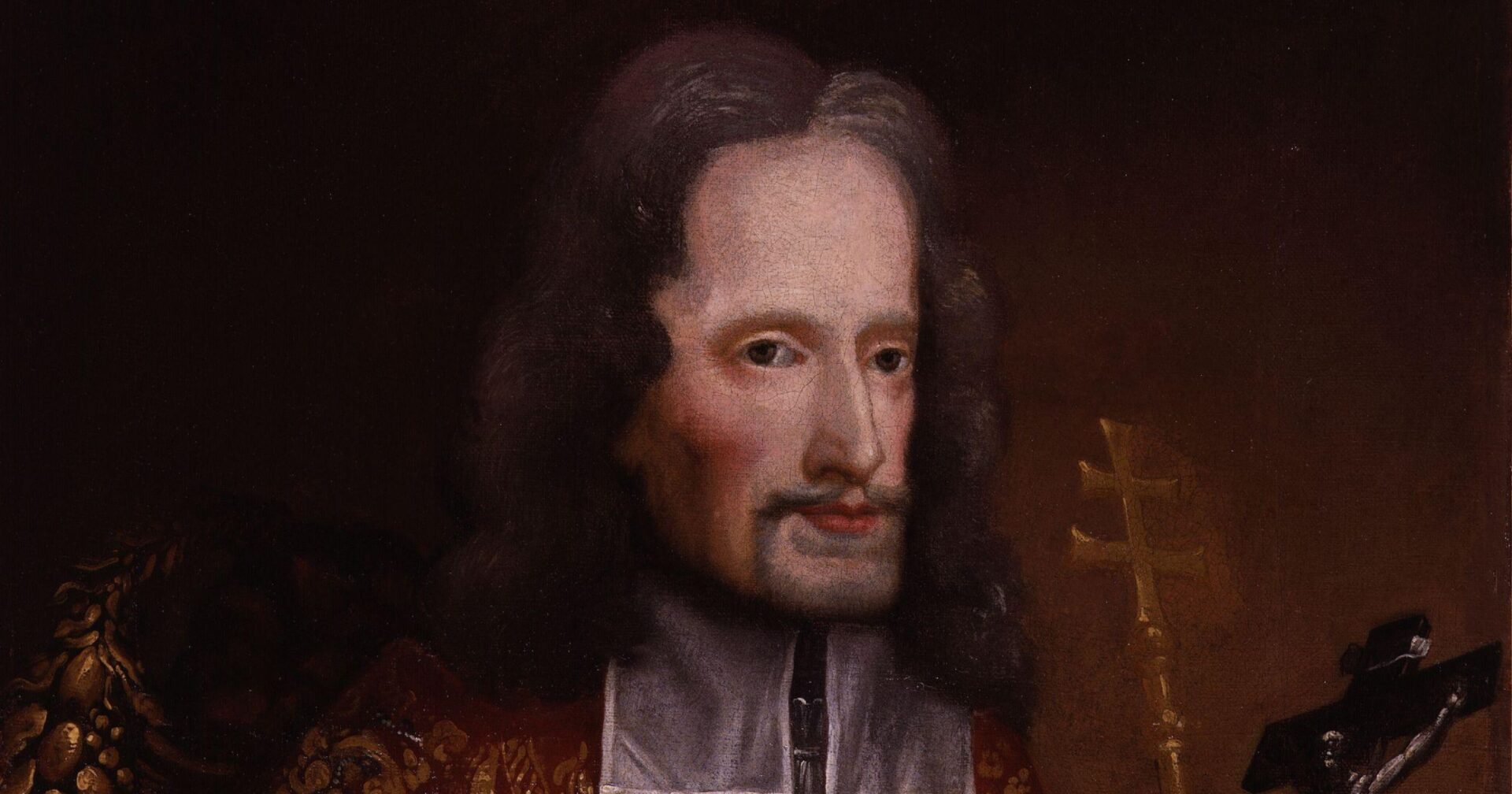
Oliver Plunkett, later recognized as Saint Oliver Plunkett, was born on 1st November 1625 into a prominent Anglo-Norman family in Loughcrew, near Oldcastle in County Meath. In 1647, he journeyed to Rome to study for the priesthood at the Irish College, and was ordained as a priest in 1654.
Plunkett’s formative years as a priest coincided with a tumultuous period in Irish history, sparked by the arrival of Oliver Cromwell in Ireland in 1649. This event ushered in a devastating era of massacre and persecution of Catholics. Even though Cromwell left Ireland the following year, his damaging legacy persisted through oppressive anti-Catholic laws.
Throughout the 1650s, Catholics faced expulsion from Dublin, while Catholic landowners were dispossessed of their lands. Catholic priests, in particular, bore the brunt of this oppression; they were outlawed and faced execution or exile to the West Indies for continuing to practice their faith. Seeking to evade this persecution, Plunkett successfully petitioned to stay in Rome where he became a professor of theology in 1657.
As anti-Catholic sentiments began to subside, Plunkett made his return to Ireland. He ascended to the position of Archbishop of Armagh in 1657. Under his leadership, he initiated significant reforms within the church, establishing schools for the education of both the young and the clergy, whom he found lacking in moral theology and controversies. His drive for reform extended to curbing drunkenness among the clergy, famously stating, “Let us remove this defect from an Irish priest, and he will be a saint.”
In 1670, Plunkett convened an episcopal conference in Dublin and held numerous synods within his archdiocese. Nevertheless, his tenure was not without controversy. He was embroiled in a long-standing dispute with Archbishop Peter Talbot of Dublin over their respective claims to be the primate of Ireland. His relationships with religious orders were also strained, especially with the Franciscans whom he upset by siding with the Dominicans in a property dispute.
The peaceful respite from anti-Catholic persecution was short-lived. By 1673, a new wave of persecution swept the land, prompting Plunkett to retreat into hiding. He rejected a government directive to register at a seaport for exile. When the so-called “Popish Plot” – a conspiracy theory by Titus Oates in England – ignited further anti-Catholic sentiments in 1678, Plunkett went into hiding once more.
Accusations against Plunkett escalated. The privy council in London was misinformed that he was plotting a French invasion. Consequently, in December 1679, Plunkett was arrested and incarcerated in Dublin Castle, where he gave absolution to the dying Talbot. He was transported to London, where he was wrongfully convicted of high treason in June 1681, based on perjured testimonies from two disgruntled Franciscans.
On July 1, 1681, Plunkett faced execution at Tyburn, becoming the last Catholic martyr in England. His sacrifice was not forgotten. He was beatified in 1920 and canonised in 1975, marking the first Irish saint in almost seven centuries.
Photo credit: Public Domain via Wikimedia Commons
The post Saint Oliver Plunkett appeared first on uCatholic.
Daily Reading
Monday of the Third Week in Ordinary Time
Reading 1 Hebrews 9:15, 24-28 Christ is mediator of a new covenant: since a death has taken place for deliverance from transgressions under the first covenant, those who are called…
Daily Meditation
That’s a Great Idea!
Click here for daily readings Have you ever had an idea that you thought was great but nobody else did? Well, that was one of the dilemmas Saint Angelia Merici…




